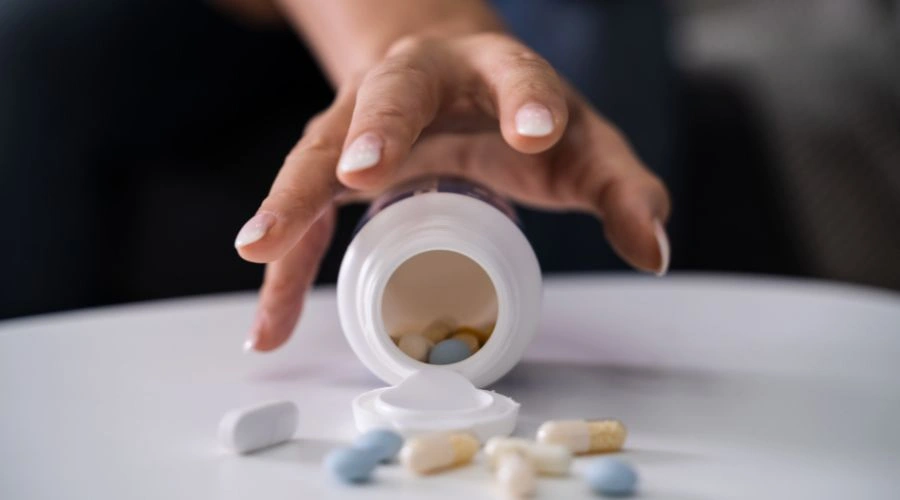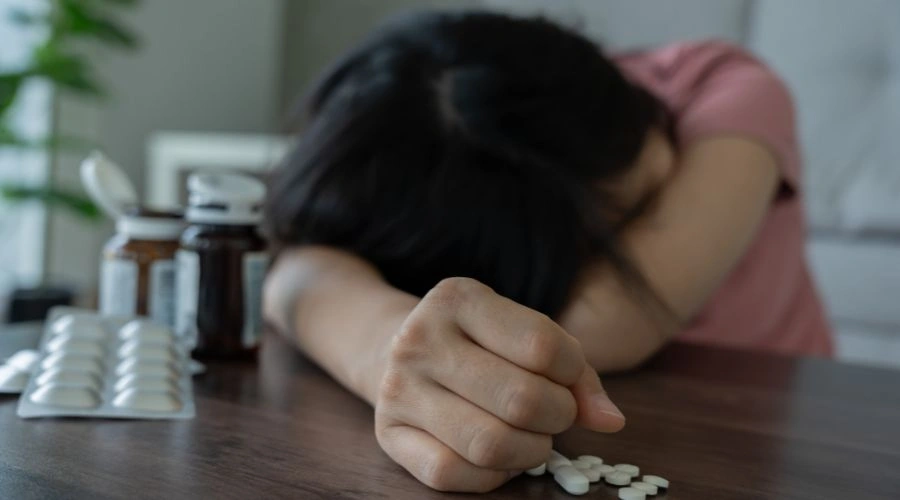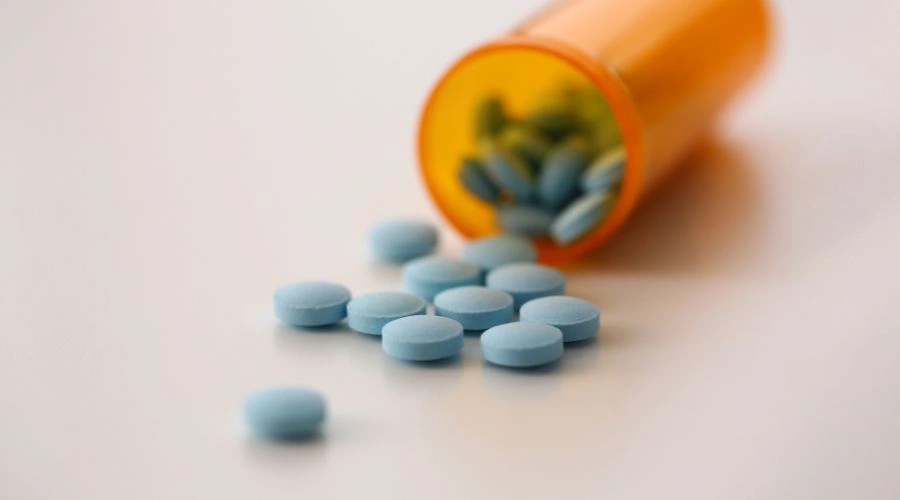Understanding Roxicodone as a Loved One And Treatment Options
Street drugs take on new names, making it difficult to spot addictive substances at first glance. If you have heard a loved one mention that they’re taking Roxies, you might wonder what that means. What are Roxies, and why should you be concerned?
Roxies are the street name for the drug Roxicodone (oxycodone hydrochloride), which is a Schedule II controlled substance. Symptoms of Roxicodone use include slowed breathing, drowsiness, dizziness, and other mental health symptoms associated with opioids.
When you suspect that a loved one is dealing with opioid addiction, don’t wait another moment to talk with them about it and lay out treatment options. Ingrained Recovery can guide you through all of the treatment options and verify your insurance benefits.
Keep reading to learn more about what Roxicodone addiction looks like and how you can offer hope, help, and healing.
What are Roxies and How Can You Spot Roxicodone Addiction?

Roxies pose a serious threat to those who fall into their grips, mainly because of their high potential for addiction. Known as Roxicodone in the doctor’s office, these painkillers fall into the opioid category and their use should be taken seriously.
While some people start taking Roxies legally, it’s common for people to get these on the streets when their prescription refills run out. Know the warning signs and prevent your loved one from taking these types of drugs with unknown origins, which can be even more dangerous.
Here’s everything you need to know about Roxies and how they work.
Understanding Oxycodone Hydrochloride and How Roxicodone Works
First, it’s important to understand exactly what Roxies are and how they work. This is another variant of oxycodone hydrochloride, a semi-synthetic opioid. Unlike many other types of opioid medication on the market, this drug offers immediate-release formulas to treat moderate to severe pain.
They are considered a Schedule II controlled substance because of their risk of physical dependence.
Oxycodone hydrochloride binds to opioid receptors in the brain. As a result, it can cause the central nervous system to miss the pain messages that the body is sending out. The body can finally relax and experience pain relief, as well as a sense of overall euphoria and improved well-being.
It’s this overwhelming sense of euphoria that leads many people to abuse the drug. Like most opioids, it is very easy for your body to become accustomed to taking it–and to crave more and more of it.
Get Accredited Treatment at Ingrained
Find Help At Ingrained Recovery
Health Risks of Roxies: Respiratory Depression and More
The reason that many doctors won’t prescribe Roxies is because of their serious health risks. While the drug should be taken only as a last resort for pain relief, the drug can cause some serious health risks even when taken as prescribed.
Perhaps the most serious health risks include respiratory depression and extreme drowsiness. Someone taking Roxicodone might also have nausea and dizziness accompanying the drug use. At low dosages and under medical attention, these symptoms should be manageable and rarely pose a threat.
The problem is that prescription opioids can lead to serious consequences for addiction. Eventually, a person who has taken Roxies may not need to relieve pain but still crave the euphoria of the drug. Over time, you’re likely to build up a tolerance to the drug and require more of it for the same effects, leading to a fatal overdose.
When you notice that the pills disappear faster than they should, you should be concerned and bring it to a doctor’s attention.
Mental Health Symptoms of Opioid Misuse

While many individuals are first concerned with the physical dependence on the drug and its health risks, it’s important not to overlook the role of mental health. Depression and anxiety may worsen with repeated dosages of the drug. People who have developed a reliance on it may have extreme mood swings.
It’s common for those who are addicted to the drug to withdraw and isolate themselves. Relationships suffer, but so do their other responsibilities at work and at home. If something doesn’t seem right with your loved one, it may be worth probing into their drug use and prescription history.
Withdrawal Symptoms for Opioid Addiction
How can you tell that your loved ones might have a problem with Roxies or Roxicodone addiction? The first sign that they need addiction treatment is usually the arrival of unpleasant withdrawal symptoms.
During the first few days without the drug in their system, someone may experience intense cravings for more. This can perpetuate the cycle, making them more likely to use if they don’t seek help from an experienced detox center.
Other withdrawal symptoms include:
- Nausea, vomiting, and gastrointestinal upset
- Tremors or shaking, such as in the hands
- Hot and cold flashes or goosebumps
- Clammy skin
- Anxiety and irritability
- Watery eyes or runny nose
- Sleep disruptions
Because the half-life of this medication is relatively short at just three to five hours, your loved one may experience the onset of these symptoms rapidly after their last dose. This is why finding treatment is a crucial part of confronting them with their drug addiction.
What Addiction Treatment at Ingrained Recovery Offers

Withdrawal symptoms are not just uncomfortable; they can also lead to fatal consequences for anyone who has been abusing Roxies. Long-term recovery should start in the safe environment of our medical detox program.
This provides your loved one with access to a team of medical professionals available around the clock. Not only do we help get to the underlying causes of the popular drug use, but we also deal with all of the physical effects on the body. Our doctors and nurses offer emergency help when needed alongside monitoring.
Medication-assisted treatment is also an option. This allows our medical team to prescribe other things for severe pain signals, as well as for the side effects that come with withdrawal. Our goal is to make your loved one as comfortable as possible.
Up To 100% of Rehab Covered By Insurance
Find Help At Ingrained Recovery
Contact Us Today for Help with Roxicodone Addiction
When you notice the warning signs of opioid addiction, it’s never too soon to start seeking help for your loved one. Ingrained Recovery provides them with a comprehensive treatment option, starting with our medical detox program and transitioning to long-term residential care.
If you believe your loved one could benefit from our luxurious amenities and professional guidance, we invite you to contact our enrollment team today for more information. We can even verify their insurance benefits, proving that care is affordable.
With same-day placement, you never have to worry about where to turn for immediate assistance!
References
- National Institutes of Health. (n.d.). Roxicodone – Oxycodone Hydrochloride Tablet. U.S. National Library of Medicine.
- Food and Drug Administration. (n.d.). Roxicodone (oxycodone hydrochloride tablets USP).
- Sadiq NM, Dice TJ, Mead T. Oxycodone. [Updated 2024 Feb 20]. In: StatPearls [Internet]. Treasure Island (FL): StatPearls Publishing; 2025 Jan-. Available from:
- U.S. National Library of Medicine. (n.d.). Opiate and opioid withdrawal. MedlinePlus.

